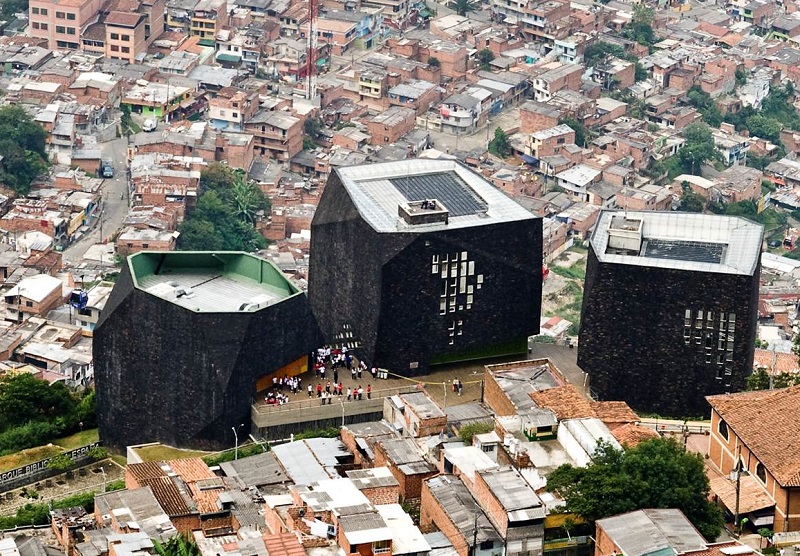Architecture for Politics: Designing Collectivity in Medellín’s Library-Parks
Dr Caue Capille, Federal University of Rio de Janeiro, Brazil
Awards RIBA President's Awards for Research 2017
Category Cities & Community

The Library-Parks of Medellín, Colombia, are pivotal in this city’s project of ‘urban and social upgrading’. They consist of a combination of cultural programmes and generous surrounding and indoor spaces for public use, built with the intention to produce a new sense of community and citizenship by means of architecture and its appropriation. This fact opens a series of questions regarding the instrumental use of architecture for strengthening political awareness and addressing social inequalities. This research looks at both the propaganda of social change brought by these buildings’ mediatic monumentality, and at how public libraries frame social relationships through their architecture, thus materialising specific ideologies of politics and culture. Firstly, it describes these libraries’ spatial layout and their spatial organisation of programme. Secondly, it shows how the libraries are used through detailed mapping of users’ co-presence, which exposes patterns that are further associated with the spatial and programmatic arrangements. Based on these analyses, it formulates types of spatial cultures in public libraries and exposes the role of space in influencing the emergence and/or constraint of particular patterns of social awareness that the traditional notion of the programme cannot capture. Finally, it associates these types of spatial cultures with Medellín’s political agenda of social change. It is found that depending on how public libraries control public use (spatially and programmatically), they can support the emergence of informal activities or work as educational institutions only. In addition, depending on how their educational role is manifested in space as spatial practices, they can serve as places that facilitate the exercise of institutional-bureaucratic power to normalise visitors’ behaviours, or places that stimulate public participation and negotiation. The findings emphasise how public libraries work as accessible civic environments, promoting visitors’ political and social awareness and potentially strengthening the collective engagement of the surrounding communities.






